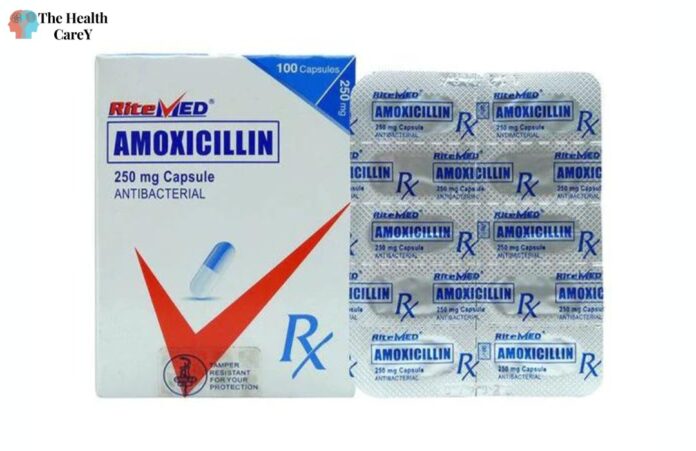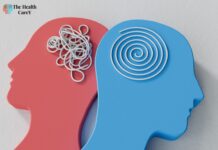If you’ve ever taken amoxicillin, you may have experienced some side effects. One of the most common ones is fatigue. You might find yourself feeling more tired than usual while taking this medication. But does amoxicillin really make you tired, or is it just a coincidence?
Amoxicillin is a type of antibiotic used to treat various bacterial infections. It works by killing the bacteria causing the infection. While it’s generally considered safe, amoxicillin can have side effects. One of these is fatigue. Some people report feeling more tired than usual while taking the medication. But why does this happen, and is there anything you can do about it?
Key Takeaways
- Amoxicillin can cause fatigue as a side effect.
- The exact reason why amoxicillin causes fatigue is not fully understood.
- To manage fatigue while taking amoxicillin, make sure to get plenty of rest and stay hydrated.
What Is Amoxicillin?
Amoxicillin is a type of antibiotic that belongs to the penicillin family. It is commonly used to treat bacterial infections such as pneumonia, bronchitis, ear infections, and urinary tract infections. Amoxicillin works by killing or stopping the growth of bacteria that cause infections.
Amoxicillin is available in various forms, including capsules, tablets, and oral suspension. It is usually taken orally, with or without food, as directed by your healthcare provider. The dosage and duration of treatment may vary depending on the type and severity of the infection.
It is important to note that amoxicillin is only effective against bacterial infections and cannot be used to treat viral infections such as the common cold or flu. Additionally, it is important to complete the full course of treatment as prescribed by your healthcare provider, even if you start feeling better before the medication is finished.
Some common side effects of amoxicillin include nausea, vomiting, diarrhea, and skin rash. If you experience any severe or persistent side effects, you should contact your healthcare provider immediately.
Does Amoxicillin Make You Tired?
If you have recently been prescribed amoxicillin, you may be wondering if this antibiotic can cause fatigue or drowsiness. While fatigue is not a common side effect of amoxicillin, some individuals can experience this symptom.
Amoxicillin is an antibiotic that is commonly used to treat bacterial infections. It works by killing the bacteria that are causing the infection. While amoxicillin is generally considered safe and well-tolerated, it can cause side effects in some people.
One possible side effect of amoxicillin is fatigue. This can occur because the antibiotic can disrupt the balance of bacteria in your gut, which can affect your energy levels. Additionally, if you are taking amoxicillin to treat an infection, your body may be using more energy to fight off the infection, which can also contribute to feelings of fatigue.
If you are experiencing fatigue while taking amoxicillin, it is important to talk to your doctor. They may be able to adjust your dosage or switch you to a different antibiotic that is less likely to cause this side effect.
In summary, while fatigue is not a common side effect of amoxicillin, some individuals can experience this symptom. If you are feeling tired or exhausted while taking amoxicillin, talk to your doctor to determine the best course of action.
Does Amoxicillin Make You Sleepy?
If you’re taking amoxicillin, you may be wondering if it’s making you feel more tired than usual. While fatigue isn’t a common side effect of amoxicillin, it can happen in some cases.
Amoxicillin is an antibiotic that’s used to treat a variety of bacterial infections. It works by killing the bacteria that are causing the infection. While amoxicillin is generally safe and well-tolerated, there are some side effects that you may experience.
One of the possible side effects of amoxicillin is fatigue. This can happen because amoxicillin can disrupt the normal balance of bacteria in your gut, which can affect your energy levels. Additionally, if you’re taking amoxicillin to treat an infection, your body may be using more energy to fight off the infection, which can also make you feel more tired.
If you’re experiencing fatigue while taking amoxicillin, it’s important to talk to your doctor. They may be able to recommend ways to help you manage your symptoms, such as getting more rest or adjusting your dosage.
Overall, while fatigue isn’t a common side effect of amoxicillin, it can happen in some cases. If you’re experiencing fatigue while taking amoxicillin, talk to your doctor to see if there’s anything they can do to help you feel better.
Connection Between Amoxicillin and Fatigue
If you are taking amoxicillin, you may experience fatigue as a side effect. This is because amoxicillin can disrupt the balance of the microbiome in your gut, which can lead to decreased energy levels.
The microbiome is a complex ecosystem of bacteria that live in your gut and play a crucial role in your overall health. When you take antibiotics like amoxicillin, they can kill off both good and bad bacteria in your microbiome, disrupting the delicate balance.
This disruption can lead to a variety of symptoms, including fatigue, as your body works to restore the balance of your microbiome. In addition, amoxicillin can also cause other side effects, such as nausea, vomiting, and diarrhea, which can contribute to feelings of tiredness and weakness.
It’s important to note that not everyone who takes amoxicillin will experience fatigue as a side effect. However, if you do notice a significant decrease in your energy levels while taking this medication, it’s important to talk to your doctor to determine the best course of action. Your doctor may be able to recommend ways to manage your symptoms or adjust your medication regimen to minimize side effects.
Scientific Studies on Amoxicillin and Fatigue
There have been several scientific studies conducted on the effects of amoxicillin on fatigue. One study published in the Journal of Antimicrobial Chemotherapy found that fatigue was a common side effect of amoxicillin, occurring in up to 3.8% of patients who took the medication.
Another study published in the European Journal of Clinical Pharmacology found that amoxicillin can cause central nervous system (CNS) side effects, including fatigue, dizziness, and headache. The study found that these side effects were more common in older patients and those with impaired renal function.
A more recent study published in the Journal of Family Practice found that amoxicillin can cause fatigue in some patients, but the incidence of fatigue was lower than in previous studies. The study found that only 1% of patients who took amoxicillin reported fatigue as a side effect.
It is important to note that while these studies suggest that amoxicillin can cause fatigue, not all patients will experience this side effect. Additionally, other factors such as age, underlying medical conditions, and medication interactions may also contribute to fatigue.
If you experience fatigue while taking amoxicillin, it is important to speak with your healthcare provider. They may be able to adjust your medication or recommend other treatments to help manage your symptoms.

Factors That Enhance Fatigue While Taking Amoxicillin
Taking amoxicillin can lead to fatigue in some people. Several factors can enhance fatigue while taking amoxicillin. Here are a few of them:
1. Underlying Medical Conditions
If you already have an underlying medical condition that causes fatigue, taking amoxicillin can make it worse. For example, if you have anemia or chronic fatigue syndrome, taking amoxicillin can increase your fatigue levels. In such cases, it is important to talk to your doctor about alternative antibiotics or ways to manage your symptoms.
2. Dosage and Frequency
Taking high doses of amoxicillin or taking it more frequently than prescribed can lead to fatigue. This is because the medication can disrupt your sleep patterns and cause insomnia. It is important to follow your doctor’s instructions carefully and take the medication as prescribed.
3. Dehydration
Amoxicillin can cause dehydration in some people, which can lead to fatigue. Make sure you drink plenty of water while taking amoxicillin to avoid dehydration. Avoid alcohol and caffeine, which can also dehydrate you.
4. Other Medications
Taking other medications along with amoxicillin can enhance fatigue. For example, taking pain medications or muscle relaxants can make you feel more tired. It is important to talk to your doctor about any other medications you are taking and how they may interact with amoxicillin.
5. Allergic Reactions
In rare cases, taking amoxicillin can lead to an allergic reaction, which can cause fatigue along with other symptoms such as rash, hives, and difficulty breathing. If you experience any of these symptoms, seek medical attention immediately.
Overall, while taking amoxicillin, it is important to be aware of these factors that can enhance fatigue. If you experience excessive fatigue or other symptoms, talk to your doctor about alternative medications or ways to manage your symptoms.
How to Manage Fatigue Caused by Amoxicillin
If you are experiencing fatigue while taking amoxicillin, there are a few things you can do to manage it:
- Get plenty of rest: Make sure you are getting enough sleep each night, and try to take naps during the day if you need to.
- Stay hydrated: Drinking plenty of water can help you feel more alert and energized.
- Eat a balanced diet: Eating a healthy, balanced diet with plenty of fruits, vegetables, and whole grains can help you maintain your energy levels throughout the day.
- Avoid caffeine and alcohol: Both caffeine and alcohol can interfere with your sleep and make you feel more tired during the day.
- Talk to your doctor: If your fatigue is severe or persistent, talk to your doctor. They may be able to adjust your dosage or switch you to a different medication.
Remember, fatigue is a common side effect of many medications, including amoxicillin. By taking these steps, you can help manage your fatigue and feel more alert and energized throughout the day.
Conclusion
In conclusion, amoxicillin is a commonly prescribed antibiotic that is used to treat a wide range of bacterial infections. While it is generally safe and effective, it can cause side effects like fatigue and drowsiness in some people.
If you are experiencing tiredness or other symptoms while taking amoxicillin, it is important to talk to your doctor. They may be able to adjust your dosage or switch you to a different medication that is better suited to your needs.
In general, it is important to follow your doctor’s instructions when taking amoxicillin or any other medication. This includes taking the medication at the same time each day, completing the full course of treatment, and avoiding alcohol and other substances that can interact with the medication.
By taking these precautions, you can help ensure that you get the most benefit from your medication while minimizing the risk of side effects. If you have any questions or concerns about taking amoxicillin, don’t hesitate to speak with your doctor or pharmacist.
Frequently Asked Questions
What are the top 3 side effects of amoxicillin?
The most common side effects of amoxicillin include diarrhea, nausea, and vomiting. However, these side effects are usually mild and go away on their own after a few days. If you experience any severe side effects, you should contact your doctor immediately.
Can amoxicillin cause sleeplessness?
Amoxicillin is not known to cause sleeplessness. However, some people may experience difficulty sleeping due to their illness or other factors. If you are having trouble sleeping while taking amoxicillin, you should talk to your doctor.
How should I feel after taking amoxicillin?
After taking amoxicillin, you should start to feel better within a few days. Your symptoms should start to improve, and you should have more energy. However, if you do not feel better or if your symptoms get worse, you should contact your doctor.
Do antibiotics make you dehydrated?
Antibiotics can sometimes cause dehydration, especially if you experience diarrhea or vomiting. It is important to drink plenty of fluids while taking antibiotics to prevent dehydration. If you are experiencing severe dehydration, you should contact your doctor.
Do antibiotics make you bloated?
Antibiotics can sometimes cause bloating, especially if you experience gastrointestinal side effects such as diarrhea or constipation. However, this side effect is usually mild and goes away on its own. If you experience severe bloating or other gastrointestinal symptoms, you should contact your doctor.
Do antibiotics make you sweat?
Antibiotics can sometimes cause sweating, especially if you experience fever or other symptoms of infection. However, this side effect is usually mild and goes away on its own. If you experience severe sweating or other symptoms, you should contact your doctor.





















